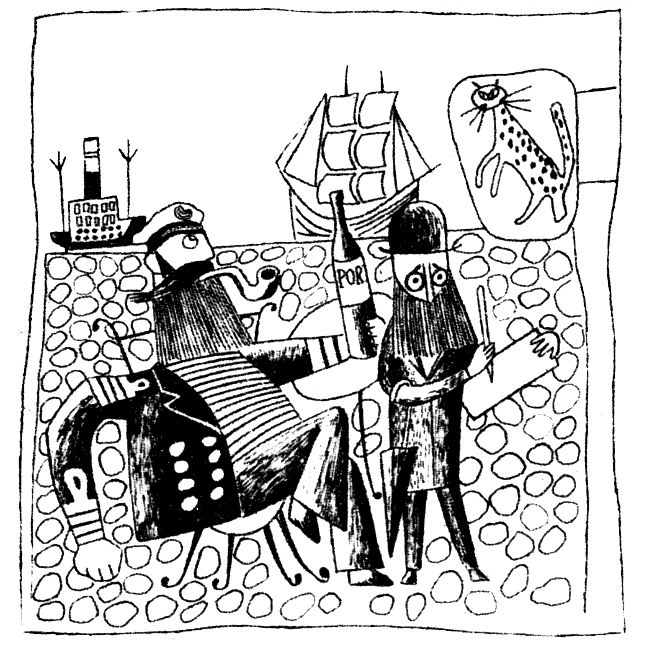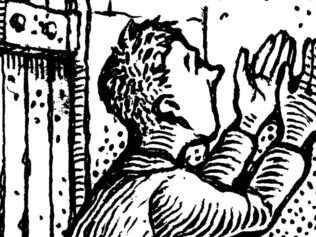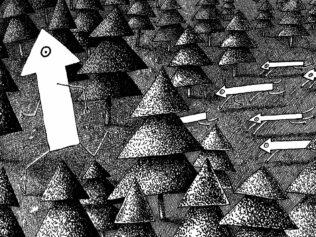
Professor Tutka was a fictional character created by the Polish writer, playwright and columnist Jerzy Szaniawski (1886–1970). Stories about Professor Tutka were highly popular among “Przekrój” readers. We present you with the first tale from this series published in 1949.
Some of the gentlemen in the conversation asserted that cannibalism still existed. The Judge was uncertain as to whether it might or not. The Doctor dismissed such stories succinctly, as “fairy-tales”. Professor Tutka said this:
“Gentlemen, I do not know whether cannibalism still exists today, but it definitely existed some thirty years ago. I was then a young man and I got to know a certain newspaper editor. I told him a few stories from my life, which was then still a short one, and the journalist decided that I had improvisational skills. He offered me a job with his newspaper. The task he gave me was this: ‘Go to the port district and find the Leopard Inn. I have been told that one can encounter there a certain commercial-boat captain who was once shipwrecked and ended up on an island inhabited by cannibals, from which he was miraculously rescued. You will recognize him by the fact that he smokes a pipe, drinks porter, and stares off into space. Ask him for an interview. The point is not that what he tells you should be completely true, but for the story to be… exotic. You will demonstrate your skills.’”
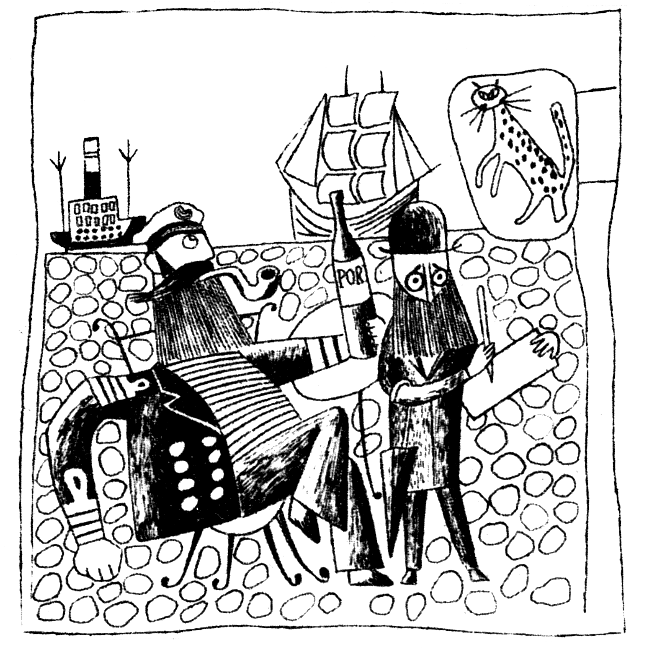
So I went to the Leopard Inn. As it was daytime, there were few people there. I saw a man with a pipe, drinking porter and staring off into space. I introduced myself and asked for an interview. He responded indifferently:
“Sure.”
“Captain, I heard that you were once captured by cannibals.”
“I was.”
“I was told this happened in the Little Coconut Archipelago.”
“It did.”
“What did those scoundrels do to you first? Did they tie up your hands?”
“My legs.”
“Apart from that, how did they behave?”
“Politely.”
“Were you able to communicate with them somehow?”
“I didn’t try.”
“Did they want to roast you?”
“No, to boil me.”
“Did they have a cauldron?”
“A big one.”
“Would you not like to share with our readers what it’s like to be a person who’s about to be eaten? What does it feel like?”
“It feels dumb.”
When I was jotting down the world ‘dumb’ in my notebook, a man sitting at the next table butted in.
“I do beg your forgiveness,” he said. “But your topic greatly interests me: I will not deny that island natives wanted to eat the good Captain, but it could not have happened in the Little Coconut Archipelago. Years ago I studied the Little Coconut Archipelago very closely and concluded that the natives there are vegetarians. They do not consume anything that walks or flies. They do not even eat eggs, because the very thought that the contents of an egg might one day walk or fly is disgusting to them. The structure of the jaws and guts of those people clearly demonstrates that they are grass-eaters. And so the good Captain, whether raw or roasted, could not have whet their appetite. It must have happened in a different archipelago, one that I did not study.”
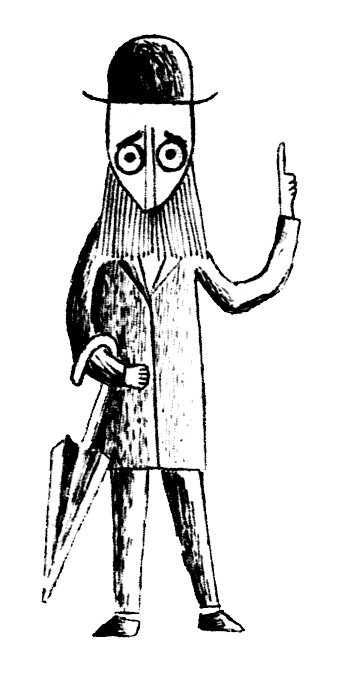
I turned back to the captain, who was gazing indifferently off into space.
“What do you say to that, Captain?”
“Nothing.”
“Maybe it was indeed not the Little Coconut Archipelago after all?”
“Maybe not.”
At this point, another guest, sitting somewhat further away, piped up. At this point I noticed only that he had a collar buttoned not in the front but in the back, which meant that he was a member of the clergy.
“You are mistaken,” the clergyman said. “There are no vegetarians on the islands of the Little Coconut Archipelago.”
“What do you mean? I studied the issue, having been sent there by Marco Polo University, where I work,” the man sitting at the next table said.
“Well, even professors from that university sometimes make mistakes.”
“You are probably thinking about incidents in which, instead of taking a colleague’s hat, we might sometimes mistakenly take his cane. But an archipelago is a much bigger thing and one archipelago cannot be confused for another.”
“But you have indeed, my dear professor, mistaken one archipelago for another. Most likely the islands you studied belonged to the Calm Lion Archipelago, because I recently visited the Little Coconut Archipelago as a missionary, but I was unable to bring salvation to a single living soul, because there simply is no living soul to be found there. The islands are uninhabited.”
The professor and missionary began to quarrel heatedly, but the captain was most evidently not interested in their discussion – he got up to leave.
I asked him a last question: “Do you want me to give you the interview to check before sending it to print?”
“No.”
Professor Tutka stopped speaking. The Judge asked:
“Is that the end of the story?”
“It is.”
“I will not deny that I was intrigued to hear it,” the Judge said. “But in fact we really have learned nothing. The captain said that natives wanted to eat him, the professor claimed that they did not because they were vegetarians, while the missionary argued that they could not have been vegetarians, because there were no natives there at all. And so where lies the truth?”
“The editor told me that things do not have to be true. The point is for the story to be exotic.”
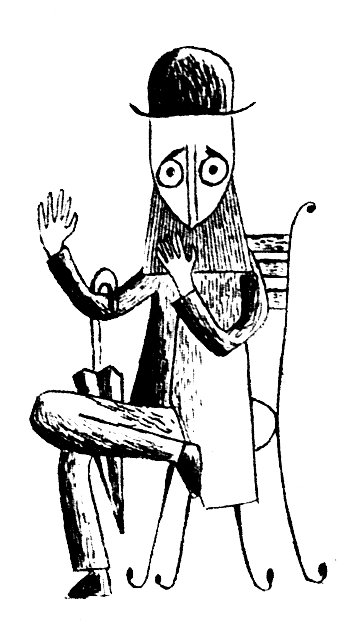
Translated by Daniel J. Sax


